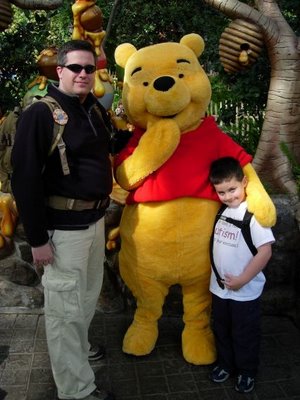The Autism "Epidemic"
Of course, like so many things, the numbers are not quite accurate. One of the primary problems with the concept of an “Autism Epidemic” is that the criteria defining an Autism Spectrum Disorder have change drastically since Dr. Leo Kanner originally used the term Autism to describe a group of children in a 1943 paper. After all, the current standards used for diagnosis of an Autism Spectrum Disorder was originally put to pen in 1980 in DSM-III and was revised in 1987 in DSM-III-R. It was again revised in 1994 in DSM-IV. With this constantly changing and refining of the diagnostic criteria, it is near impossible to compare the number if diagnosed cases.
A common rebuttal to the difference in diagnostic criteria is to look only at the number of sever diagnosis. Even this, however, does not truly take into account how different the understanding of Autism is. As an example, think of an individual with sever retardation and Autism. Prior to 1980, the diagnosis of Autism may very well have been lost in the sever retardation diagnosis.
One of the most glairing mistakes is when the total number of people diagnosed with an Autism Spectrum Disorder is compared, even in recent years. Part of the problem here is the varying age at which people are diagnosed and the difference in diagnosis. A person who at age 6 would have easily met the criteria for Autism may very well only meet the criteria for PPD-NOS at age 13, due to coping mechanisms. An example with the varying ages of diagnosis can also be seen in me and my son, Connor. Although Connor showed signs of Autism from birth, it wasn’t until he was almost 4 that we were able to get a clinical diagnosis. Connor didn’t suddenly get Autism in 2004, yet according to the statistics, that year the number of people with Autism grew by at least one. Further convoluting this is that I have never been diagnosed. If I were to seek out a diagnosis, which would most likely end up being Asperger’s Syndrome since I have no evident delay in communication skills (mostly thanks to great coping mechanisms), there would be yet another case of Asperger’s Syndrome in 2006, raising the numbers supporting the concept of an “epidemic”.
Now, I have to admit that there is very likely an increase in the number of cases of Autism. Most likely, this isn’t due to some wide spread “epidemic”, instead it can be attributed to the growing number of people who have an Autism Spectrum Disorder procreating. After all, between my wife and we have two sons. Both of my sons are in the Autism Spectrum. So, one adult with on the Autism Spectrum has begat two sons with on the Autism Spectrum. What if I had 4 or even 6 (oh my) children and all, or even half of them were on the Autism Spectrum? I would personally be accountable for spreading the “epidemic” of Autism.
Lastly, and one of the most upsetting things, is the use of the term “epidemic” itself. You see, an epidemic is a wide spread outbreak of a disease. Autism is not a disease, it is a neurological disorder. The term “epidemic” simply can not be used here. Using this type of terminology furthers the horrible misunderstanding that Autism is a plague in desperate need of a cure. It is disgusting that such highly visible (self proclaimed) Autism activist groups, such as the Autism Society of America, continue to perpetuate this misunderstanding.


